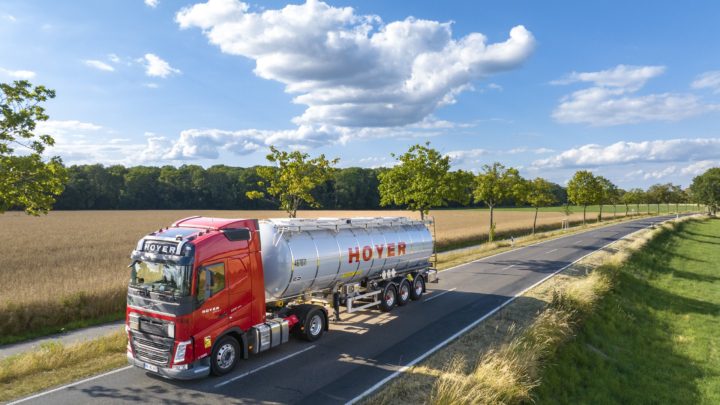
Björn Schniederkötter, Chief Executive Officer of the HOYER Group, says, “For HOYER, sustainability aspects play an essential role at all stages of the supply chain. With solid improvements over the last ten years, we have already achieved good progress towards our goal of minimising our carbon footprint.”
Thus in 2021, for the first time in the company’s history, more than 80% of the kilometres HOYER travelled were undertaken using the less CO2-intensive intermodal methods of transport. The vehicle equipment also supports a positive sustainability trend: 95 per cent of the HOYER truck fleet is powered by low-emission Euro-6 engines.
A strategic mix of measures
HOYER has set itself ambitious targets for the future: By 2025, transport-related CO2 emissions, which have already been reduced by 29 per cent since 2010, are targeted to reduce by at least a further 10 per cent – and emissions from non-transport operations to reduce by an even more ambitious 27 per cent. The logistics company aims to reduce their so-called transport-related tank-to-wheel CO2 emissions by a further 15.6 per cent to a total 25.6 per cent reduction by 2030.
To achieve its medium- and long-term sustainability goals, HOYER opted for a strategic mix of measures: These include further optimising logistical and operational processes throughout the whole company.
In road transport HOYER has additional CNG and LNG trucks in operation and has started trialling HVO biodiesel. A specifically composed project group with internal experts keeps a constant eye on the direction in which research into new energies is developing – so the international family business has a finger on the pulse of the times. Furthermore, the logistics specialist is switching to electricity from renewable energy sources in plant operations in its so-called non- transport sector.
HOYER is conscious of its responsibility for people and the environment, and constantly pursues the development and progress of technologies and working methods to further reduce emission levels. All decisions are made based social, ecological and economic considerations.
